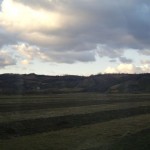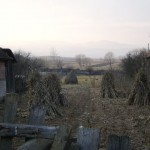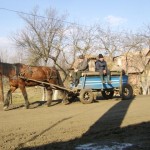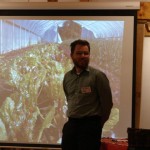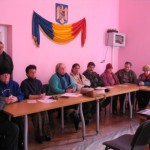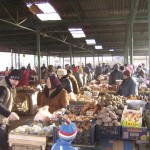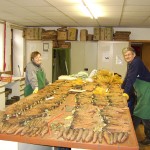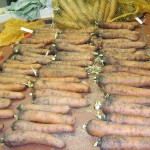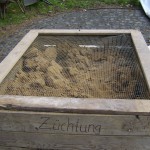This month we took a short trip to Thailand, where we combined family time with my dad (who lives there), with some Seed Ambassadorizing in a small village called Nong Ta Klong in Buriram Province, in the northeast.
On a previous trip to Thailand we had made friends with Loong Yoot, a brilliant and inspirational man whose motto is to “teach by not teach.” Loong Yoot received a scholarship to study Permaculture in Australia many years ago, and has spent the past eight years riding his bicycle around his home country teaching people by example about sustainable living. In a country where most structures are made of resource consumptive wood or cement, he teaches people to build adobe structures for community learning centers and other uses. In a culture where consumerism and materialism are rapidly stripping both rich and poor of their sense of self, he shows that another, simpler way of life is possible and in many ways preferable. Loong Yoot’s workshops bridge the class divide by bringing the rural poor together with elite city folk searching for a new way of life, and enable travelers to develop meaningful connections with people and places in that elusive “off the beaten path.”
The last time we were in Thailand (early 2004), we spent five weeks working and learning with Yoot in a village close to the Cambodian border. This time, due to a limited time frame, we spent only three days.
Po Tongbai, the former village head man of Ban Nong Ta Klong, had already started a bit of a “Center for Sustainable” in this increasingly dry region when he dug three large ponds on his land a few years ago. Some questioned his sanity, but his family and friends now enjoy fresh fish year-round, and his family has a lush, irrigated garden in the dry season. But the invitation to build an adobe structure, to invite people from near and very far away to learn about living a less resource-consumptive life, was initiated by his daughter Noi. Over the course of three weeks, dozens of people will come to Po Tongbai’s land to have fun, make connections, and learn by doing.
In the short time we were there we made many bricks and built two walls of the structure; learned how to make rice noodles in the traditional way; did a teensy bit of gardening; ate lots of delicious food; and gave a seed saving workshop. We brought some international seeds with us to share with the villagers, and in return some of the women in the village walked us around and gave us seed for many beautiful food and flower plants, some of which might even mature seed for us here in Oregon. We are thrilled to grow their authentic Thai holy basil, an edible species of cleome (spider flower), and Loong Yoot’s edible ball-shaped loofa from the northern mountain regions, among others.
